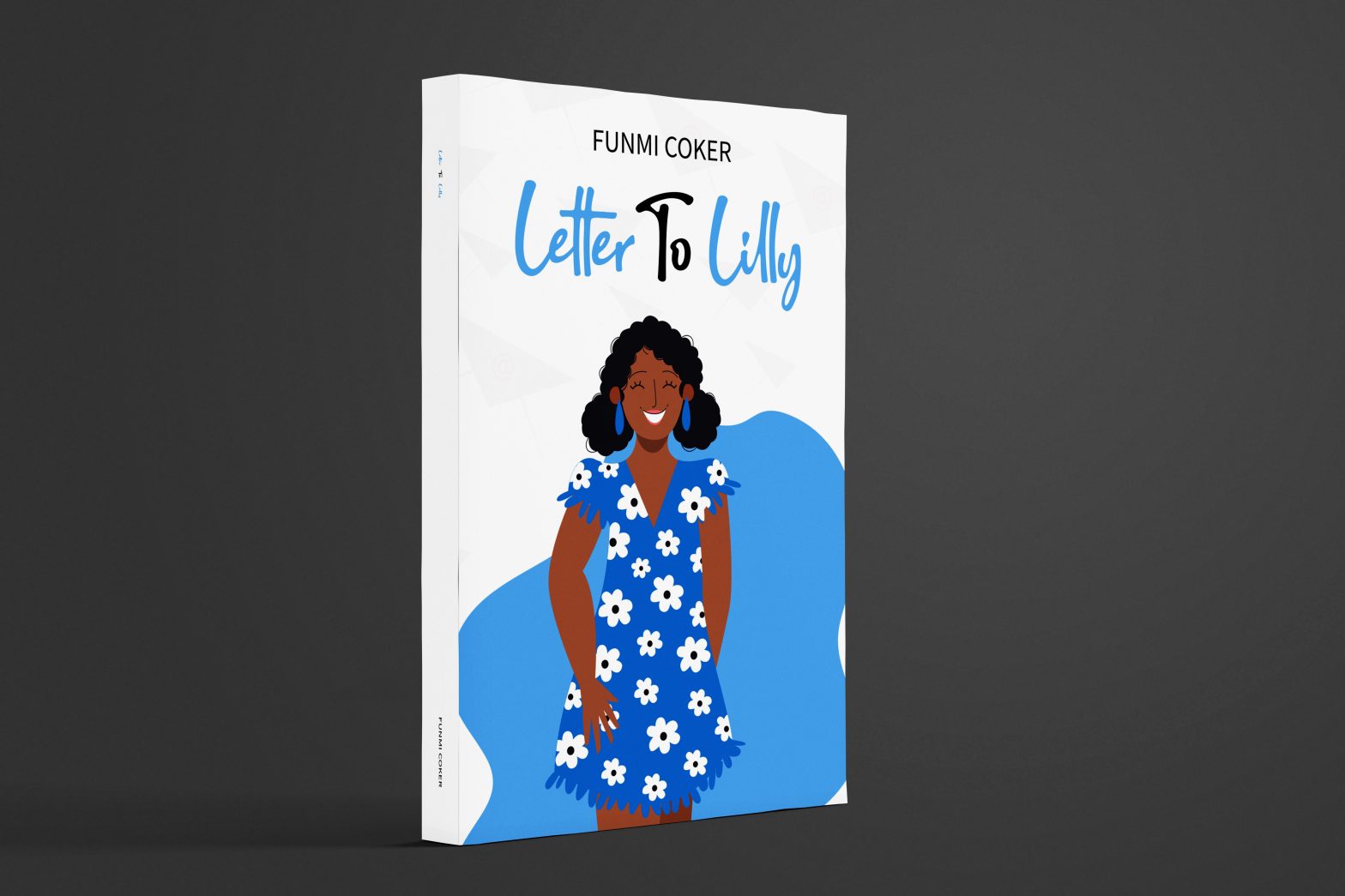Title: Letter to Lilly
Author: Funmi Coker
Publisher: The Roaring Lion Newcastle
Year of Publication: 2021
Number of Pages: 52
Category: Poetry
It takes bravery to choose to dream big in a world that does not provide the right conditions for the girl child to thrive. In Nigeria, the girl child/women face numerous challenges. As a result, more women are taking to the streets to advocate for political, economic, and social equality. This is clear from the beginning of the poetry collection Letter to Lilly.
Yes, on first reading, Funmi Coker’s Letter to Lilly appears to take on the role of an activist. First, the author uses the first poem in the book, “Identity,” to pique readers’ interest.
Following the thrill of reading the first poem, the author dares to disturb. The author introduces us to one of the collection’s most pressing issues: “What were you told, woman? / What was the baseline of their/ shallow studies? To what extent did they/ relegate the manifestation of your potential/ and the upheaval of your uprising?” We can see from these questions that Coker is unapologetically blunt; however, a discerning reader may be concerned about Coker’s poetic style.
The following poem starts with a force: “Burn, lady. Burn” and the poem concludes with the lines “and you’re the right kind of fire”—giving readers a good idea of where Coker intends to take them.
Her use of only lower-case letters in ‘Becoming a Woman’ appears to be an interpretation of how society views a woman’s worth.
Coker’s tone is empathic, cold, and primarily angry. This is exemplified by poems such as “A Pint of Madness,” “Anatomy of Women in my City,” and “Treat her like a Woman.” Male readers may perceive the author’s hatred and conclude that the book is biased.
A poet in Coker’s position may be compelled to write passionately about what she believes in, but she keeps repeating herself in order for each page and message to sink in. This occurs several times throughout the book, and Coker’s readers may find the repetition instructive or annoying.
Coker introduces various struggles that women face at various points in their lives as the book progresses. Some of these poems, however, reflect on what we might require if we are overwhelmed by these issues. This is evident in the poem “An Epiphany from Hunger.”
Some poems can be read and reread to gain a better understanding of their meaning, but they are difficult to feel.
While the collection is about femininity, abuse, suffering, oppression, heartbreak, and grief, there is still hope in its pages. In the poem ‘her LIB Anthem,’ she moves away from self-pitying poems and instead writes words that create new feelings and bring about change. The book progresses from ‘the hurting’ to ‘healing.’
What is the future of the Nigerian girl child? The author does not say, but she would like to tell you that you must dream big and achieve even bigger, despite all odds.
Funmi Coker’s Letter to Lilly contains poems that every woman will remember and adore.
About the reviewer
Titilade Oyemade is a business executive in a leading organisation and holds a degree in Russian Language. She’s the convener of the Hangoutwithtee Ladies Event and the publisher of Hangoutwithtee magazine. She spends her weekends attending women conferences, events and book readings. She loves to have fun and to help other women have the same in their lives. Email: titi.oyemade@gmail.com Social: @tiipree

